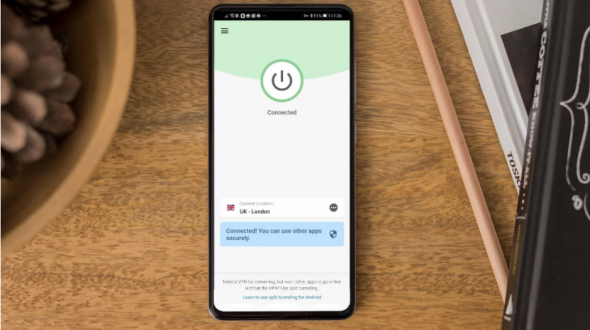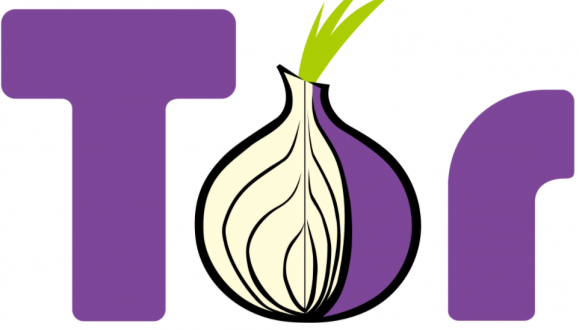Bypass web filters using a VPN
In some cases, you won’t be able to download or install a VPN, such as at work or school. But if you’re using your own device which isn’t restricted like that, you can install a VPN app.
This is one of the most popular and effective methods of bypassing web filters. It routes your internet connection through an online server, anonymously, allowing you to browse as if you were using a different device in a different location.
Unlike a simple proxy (see below) it routes all of your internet access through this connection, rather than just your web browser. That might be more than you need to just get around a web filter, but there are other reasons to want a VPN.
There are dozens of VPN services you could use, including free ones. And in some cases, a free one will do the job perfectly. But we recommend opting for a paid VPN such as NordVPN which is not only affordable, but also offers the best service overall.
One other that we can easily recommend is Surfshark, a name which isn’t as well known as Nord, but which is even more affordable and has been steadily improving its service while we’ve been using it for the past few years. For more options take a look at our round-up of the best VPNs.
Typically, you’ll download and install an app on your PC, Mac, phone, or tablet, enter your username and password (as part of the setup process) and then pick a country to appear to be browsing from. Then you can go to the blocked site as you normally would, which should now give you access.

Access blocked websites with a proxy
Another way to get around a web filter is to use a proxy service. Like a VPN, it routes your traffic through another network, but unlike a VPN it tends to only work with specific applications (e.g. your web browser or torrent application) rather than your whole connection. . That might be fine if you just want to quickly get around a web filter, but for ongoing browsing there are some downsides to a proxy.
Proxies are often used by people hoping to access region-locked content like Hulu or US Netflix, or iPlayer if you’re not in the UK, and they also offer some extra anonymity while browsing. But they can also often be used to avoid local content filters by circumventing them, hopefully allowing you to browse the web freely.
The easiest-to-use proxies simply run entirely through a webpage or a browser extension, but that also means that only the traffic from your browser will be routed through the proxy – not from any other apps or services. You also want to make sure that you find one that uses HTTPS encryption rather than SOCKS or HTTP – that’s the only way to have your traffic encrypted.
There are free public proxies, but many have a bad reputation for collecting or selling user data, inserting ads into web pages, or stripping away encryption. With that in mind, we wouldn’t recommend using a proxy service for regular browsing – you’re better off with a VPN – but if you only want to get around a web filter on a few specific occasions, a free proxy is probably your easiest option.
HideMyAss is one of the best known free proxies, and if you’re a fan they also offer a VPN service (although we didn’t rate it very highly in our review).
Otherwise, if you find another proxy service you can use this online Proxy Checker tool to cheaply check if it’s a safe service, or one that’s manipulating your web traffic.
Use Tor to browse the internet anonymously

One of your other options is to use Tor, a.k.a. ‘The Onion Router’, to browse the web. Tor is the best known example of an ‘anonymity network’, and uses layered (hence the name) encryption and peer-to-peer networking to bounce your traffic around, allowing you to browse with almost complete anonymity.
There’s one major downside to using Tor however: it’s slow. Relaying your traffic around the world a few times takes time, which means you can expect to experience much slower speeds when you browse through Tor. That’s the sort of trade-off you might be willing to make for increased privacy, but it’s not necessarily worth it if all you want is to bypass a filter – especially since the slower speeds will make streaming any sort of HD video difficult.
There are also concerns that it’s not quite as 100% secure as people once thought, especially if the site you’re trying to browse to doesn’t use SSL. And dependent on how paranoid you’re feeling, you might worry that using Tor will put you on some sort of government watchlist, given how popular it is with political dissidents and whistleblowers.
On the other hand, it’s totally free, and we’d recommend Tor over any of the free proxies or VPNs for long-term browsing (though a paid VPN service still wins – or do both!) – the added security and privacy is well worth the drop in connection speeds.
Use open proxies
Open proxies are more complicated, and we don’t recommend their use. For the record, open proxy servers require you to configure your browser’s proxy settings. Because they don’t have to modify the webpages in transport they tend to work universally. But it’s a complicated process that could leave you vulnerable to web-based attack.
Some commercial enterprises will sell you client-side software that sets up an open proxy server on your behalf, and puts your connection through a virtual private network. The same caveats apply – it may work well, but you are taking a risk.
https://www.techadvisor.com/how-to/internet/access-blocked-websites-3462091/
 Ọmọ Oòduà Naija Gist | News From Nigeria | Entertainment gist Nigeria|Networking|News.. Visit for Nigeria breaking news , Nigerian Movies , Naija music , Jobs In Nigeria , Naija News , Nollywood, Gist and more
Ọmọ Oòduà Naija Gist | News From Nigeria | Entertainment gist Nigeria|Networking|News.. Visit for Nigeria breaking news , Nigerian Movies , Naija music , Jobs In Nigeria , Naija News , Nollywood, Gist and more









